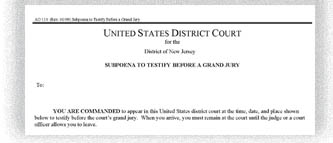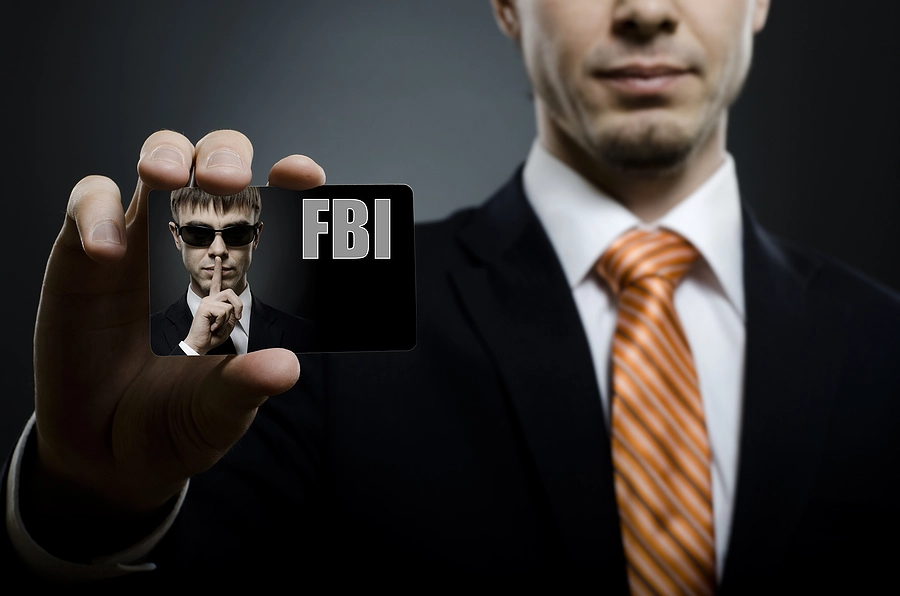A federal or state agent or detective knocks on your door at 6 a.m. and serves you with a grand jury subpoena for documents and/or testimony. Do you simply gather the documents requested and send them to the U.S. Attorney’s Office or the County Prosecutor’s Office, or do you retain experienced criminal defense counsel? If the subpoena requires testimony, what rights do you have?
A grand jury subpoena is issued from the federal or state prosecuting agency under the guise of a grand jury investigation into suspected criminal activity. The subpoena may seek years of documents and testimony regarding those documents and other relevant matters to the investigation. The subpoena may be to a witness, subject or target of the investigation. In most cases, the person served should consult with experienced defense counsel to determine whether they need representation.
First, defense counsel would contact the requesting agency to determine the status of the matter and whether the client is simply a witness or may have criminal exposure. If the client has potential exposure, then additional time will be required to understand the facts and to carefully review the documents before forwarding copies pursuant to the subpoena. There may be privileged items that counsel may attempt to withhold under limited circumstances that may require court intervention. If testimony is required, the person may invoke his right not to testify under the Fifth Amendment or seek immunity to testify. These are complicated areas of law that require experienced defense counsel to sort through.
Second, often times the scope of the subpoena is broad and the production of the requested documents can be burdensome, time consuming and expensive to locate, collect and copy. Defense counsel would discuss that issue with the prosecutor and often negotiate a limiting of the time frame or scope of the request. Counsel would also discuss an extension of time to gather, review and organize the documents to make sure that they are responsive to the request.
Simply gathering and producing documents pursuant to a grand jury subpoena may sound easy and harmless, but it can lead to a number of issues that are best handled by a criminal defense attorney. Purposely withholding relevant documents or destroying documents can lead to serious criminal charges. The act of production alone can at times be used against the person.
Robert Stahl, and his firm, Stahl Gasiorowski Criminal Defense Lawyers aggressively defend individuals charged with complex federal and state crimes. Founder Robert G. Stahl is recognized as one of the top criminal defense attorneys in the NY/NJ area for his skills, knowledge and success. To contact the firm, call 908.301.9001 for the NJ office and 212.755.3300 for the NYC office, or email Mr. Stahl at rgs@sgdefenselaw.com.




Leave A Comment